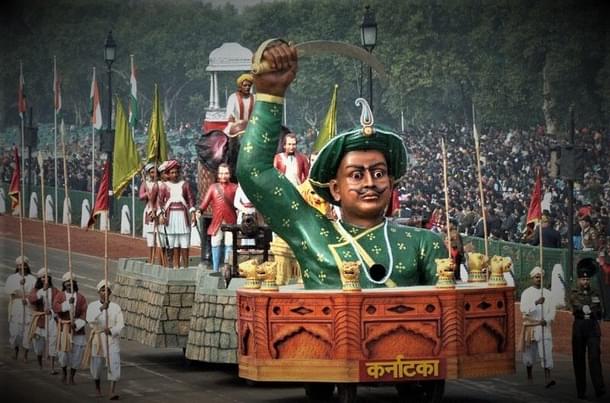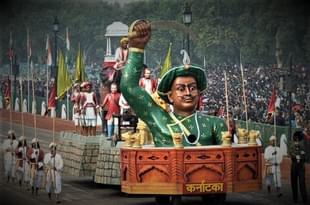Politics
Dear Text Book Committee, Tell The Tale Of Tipu In Its Entirety, Or Junk It All. Half History Is Distortion
Harsha Bhat
Jan 02, 2020, 07:02 PM | Updated Jan 03, 2020, 11:33 AM IST
Save & read from anywhere!
Bookmark stories for easy access on any device or the Swarajya app.


India and Tipu Sultan had a common enemy in the British and that is why he took them on for over two decades. But does that make him a ‘freedom fighter’? Did he really do it because it was in the best interests of our country or for his own vested interests? Very clearly the latter.
But the textbooks in Karnataka do not want to tell us this. Apparently because, telling the tales that portray the other and not-so-glorious side of Tipu Sultan would amount to ‘distorting history’, but talking of his tall tales of having taken on the British won’t.
This is the justification that the committee, tasked with looking at the issue of the inclusion of the chapter on the erstwhile ruler of Mysuru in school textbooks, has profferred.
After Kodagu MLA Appachu Ranjan raised the issue of the inclusion of the ‘tyrant who massacred Kodavas, Mandyam Iyengars and Mangalorean Catholics’ in school textbooks and sought that the chapters be dropped, the Minister for Primary and Secondary Education had directed the Karnataka Text Book Society to form a special committee to study the issue.
This committee’s report was submitted by the KTB to the government on Monday which puts the ball in the government’s court now. And since changing the content of school text books is a long-drawn process, changes if any will not be made in the coming academic year.
T R Chandrashekhar, who headed one of the panels in the committee, has said that there is no glorification of Tipu in the present textbooks and that they would not entertain the demand that he be called a ‘tyrant’ or ‘anti-Hindu’. This, he says, would amount to ‘distortion of historical facts’.
But how is selective representation of history not ‘distortion’ of historical facts. How is convenient positive portrayal not ‘distortion’ of history? How can massacres be events that ‘allegedly’ took place?
Is the Kodava community suffering the memory of a past that never was? Will anyone be able to wipe the scars that their ‘history’ has gifted them?
Is the Melukote massacre not big enough a headcount to make it to the textbooks that hail the one who inflicted such terror on a town that till today shudders at the thought of what befell them on one Naraka Chaturdashi?
Or as writer and former chairman of the textbook committee, Baragur Ramachandrappa has opined, is it really not ‘necessary for the children to know about these negative things that are attributed to him’?
The ‘children’ being referred to here are 12-15 year-olds. These are the ones who will be entrusted to make an ‘informed choice’ and exercise their electoral franchise and decide the tomorrow of the nation, in 3-5 years from this exposure to history.
Is it not then imperative that the education system enables them to have an informed opinion based on facts rather than policed and sanctified glimpses of the past?
Ranjan has, meanwhile, said he would continue his campaign against the 18th century ruler’s presence in the textbooks while also calling the committees report not ‘fair and objective’.
Seeking evidence from the committee about him being otherwise, Ranjan has expressed his willingness to take on his own party if need be, but prove that Tipu was indeed ‘a tyrant and anti-Hindu’.
Well, while extremes are certainly not what we can afford to vouch for, why is it so difficult to simply see history for what it is — a mixed bag?
If Tipu has to be lauded for his strategising and acumen, why not also list, if not condemn, his expansionist insights that knew no humanitarianism? That his sword had not just the blood of the British but also innocent nameless Hindus whose inheritors will never accept him as anything but a ‘tyrant’?
The government that wasted no time in cancelling Tipu Jayanti celebrations once it came to power sure can do what it takes to ensure it sets the narrative right.
Tell the tale of Tipu in its entirety, or don’t. As simple as that.
Harsha Bhat is an author, linguist, content strategist, and a compulsive chronicler of Bharat's civilisational heartbeat.




